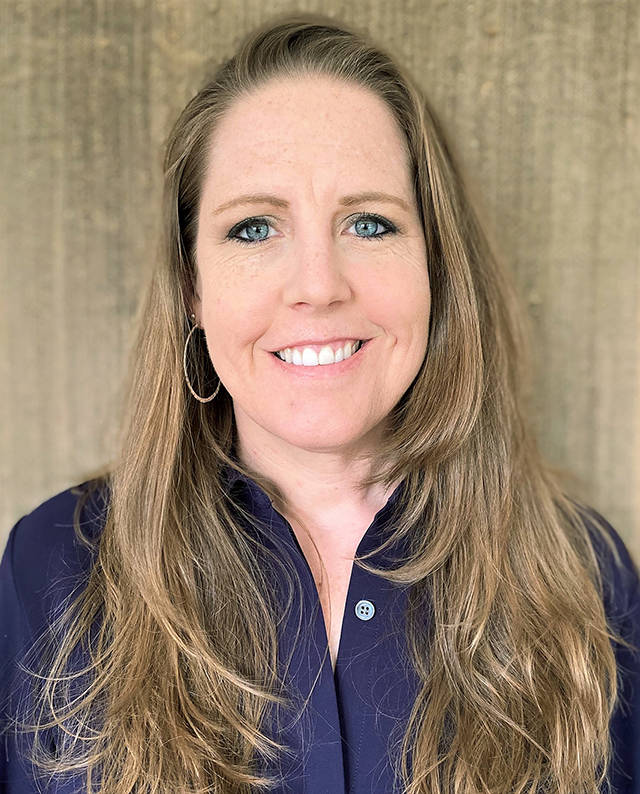A little bit of a perfect storm. With the state on the brink of reopening, that’s how a behavioral health expert sees our immediate future.
As we head toward post-pandemic life, some people are excited. They’re ready to get back to the office or blow off steam. Others are wary, with worries about returning to workplaces and routines, even as COVID-19 vaccines allay serious health concerns for many.
“We’re entering probably one of the strangest periods of ambiguity and tension and uncertainty in modern history,” said Kira Mauseth during a state Department of Health virtual news conference June 16. A clinical psychologist, Mauseth is co-leader of the department’s Behavioral Health Strike Team.
She also works with clients at Snohomish Psychology Associates, which has offices in Everett and Edmonds, and is a senior instructor at Seattle University. Her research has focused on resilience and recovery from trauma and disaster.
In an interview Wednesday, a week before the June 30 target date Gov. Jay Inslee has announced for statewide reopening, Mauseth offered advice and encouragement — whether we’re anxious or thrilled about what’s to come. Inslee said on May 13 that full reopening could happen sooner if at least 70% of state residents over age 16 are vaccinated.
“A lot of people are nervous,” said Mauseth, who has two young children and lives in Snohomish County. She noted three general areas of concern. We may see in people “a loss of emotional regulation — they’re impulsive,” she said. Secondly, people have strongly held opinions about mask-wearing, vaccines and reopening. And we’re headed into a time of more social contact, at work and elsewhere.
“It’s a little bit of a perfect storm,” she said.
During the Department of Health briefing, Mauseth said no one knows exactly when the pandemic will end, or how it will ultimately change our lives. Ambiguity is hard to tolerate.
“Humans don’t like it, we like to have a plan, we like to know what’s coming,” Mauseth said. She suggests focusing on how we do things rather than “the whats.” Pay attention, she said, to “how we talk to other people, how we listen, how we behave towards a stranger at the grocery store, or in a business meeting.”
The way we act is “where we have the power” over the next few months, she said. Living day-to-day by our core values is a way to gain a sense of control. “It’s more effective than just waiting to focus on the whats to get figured out by someone else, and then feel paralyzed until they do,” she said.
There’s wisdom, too, in Mauseth’s advice to “pause before we respond.”
“Stop, think, act,” she said. “Make a pause before you make any decisions.”
In the workplace, Mauseth said relationships may “become strange” due to varying policies and expectations. “Try and show compassion,” and understand that how we feel about the return to work “is probably different for the person who’s sitting next to us,” she said.
There’s nothing wrong with someone being on a different recovery timeline, but Mauseth sees potential for stigma related to behavioral health. “I’m worried that some of that stigma around how they’re doing versus how other folks are doing may play out in the workplace,” she said.
People of color may be especially vulnerable to increased workplace hostility or discrimination. “Just be mindful, people’s individual experiences are their own,” she said.
Data on depression and anxiety among adults show that the toughest time was early this past winter, she said.
Among young people, she’s concerned about risk-taking. “There is this sense of a need to blow off steam,” she said. Choosing a designated driver and checking in with younger people to know what they’re doing and with whom can help keep loved ones safe, she said.
As families look toward a more normal school year, Mauseth said that although kids are resilient, “that doesn’t mean they won’t have issues.”
“Some will be excited, some not,” she said. “Expect to see school refusal, anxiety and behavioral issues in the classroom. It’s going to be a tough road. In the long run, we’ll see resilience.”
Mauseth doesn’t believe life will be exactly as it was before the pandemic. For our closest ties, “it’s been a household crucible,” she said. “We’ll see a lot of divorces, a lot of closer families, and shifts in a lot of relationships.”
Some of what she called artifacts of the pandemic may last generations.
“American work culture has been described as ‘on and less on’ — with no off,” said Mauseth, who believes that may evolve into “on, on call, and off.”
As we draw near to reopening, it’s fitting to remember that COVID brought grief to thousands of families. I lost my mother, a month shy of her 99th birthday. Although she didn’t have the virus, I was unable to visit her for months because of it.
Mauseth recommends an acronym, HEAL. The H is for honoring the loss through journaling, a ritual or ceremony. The E is for expressing emotions, and there are no wrong ones. A is for acknowledging obstacles, the what-ifs or feelings of if-I’d-only.
And the L is for live.
“Breathe every day. Keep going and living, until it becomes thriving,” Mauseth said.
Julie Muhlstein: jmuhlstein@heraldnet.com
Talk to us
> Give us your news tips.
> Send us a letter to the editor.
> More Herald contact information.

























